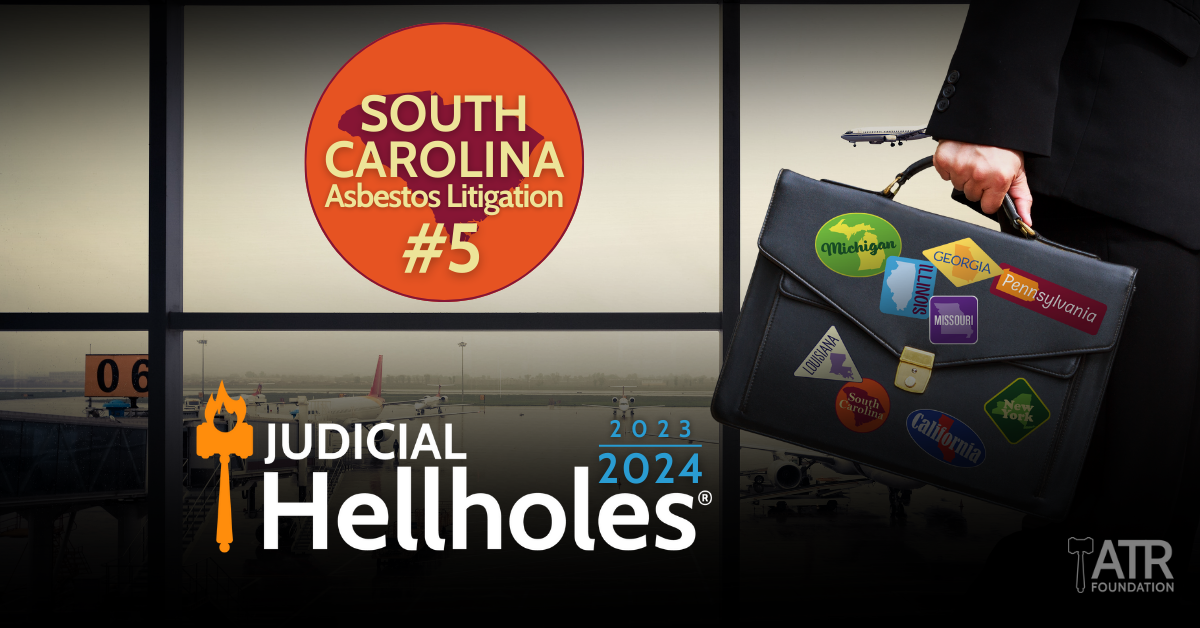KEY PLAYERS RESPONSIBLE FOR SOUTH CAROLINA’S JUDICIAL HELLHOLES® STATUS IN NATIONAL SPOTLIGHT
Earlier this month, Judge Jean Toal, a former South Carolina Supreme Court justice, was ordered to oversee the high-profile case involving jury tampering allegations against the, now-disgraced, former plaintiffs’ attorney, Alex Murdaugh. While the Murdaugh murder trial has garnered significant national media attention, it now has caught the attention of the American Tort Reform Foundation. Judge Toal’s appointment represents an interesting convergence of both past and present Judicial Hellholes®.
Judge Toal was appointed as the state’s presiding asbestos judge in 2017 and has since built a record of broad pro-plaintiff rulings and has imposed severe and unwarranted discovery sanctions on defendants. The state has cemented an unwelcome reputation for bias against corporate defendants, low evidentiary requirements, liability expanding rulings, unfair trials, severe verdicts, and a willingness to overturn or modify jury verdicts to benefit plaintiffs. Thanks to Judge Toal’s pro-plaintiff reputation, the state is a hotspot for asbestos claims and its asbestos litigation has become a mainstay on the annual Judicial Hellholes® report, coming in as high as No. 4 on the list.
Flashback to almost 20 years ago when Hampton County, South Carolina first appeared on the Judicial Hellholes® list, and a familiar name emerges. Alex Murdaugh’s former law firm, Peters, Murdaugh, Parker, Elzroth & Detrick, P.C., brought many of the major lawsuits in plaintiff-friendly Hampton County. According to the Hampton County courthouse roster in 2004, attorneys in Murdaugh’s firm represented plaintiffs in an impressive 96 of the 156 pending civil jury cases in the county.
Due to South Carolina courts’ lax interpretation of the state’s venue law during this time, personal injury lawyers chose to sue businesses in virtually any county in the state (similar to what we see in this year’s No. 1 Judicial Hellhole®). They chose Hampton County and some of its surrounding neighbors because they expected to receive favorable treatment and large verdicts. No regard was paid to the site of the claimed injury, the plaintiff’s home, or the fact that a defendant’s headquarters may be hundreds of miles away.
The fact that these two individuals now are meeting in this way is unfortunate; however, it should serve as an important reminder to South Carolina’s judiciary that it must be held to the highest standards of integrity. The state should work to rid itself once and for all of its Judicial Hellhole® status and ensure all parties receive fair and balanced treatment in South Carolina courts.







